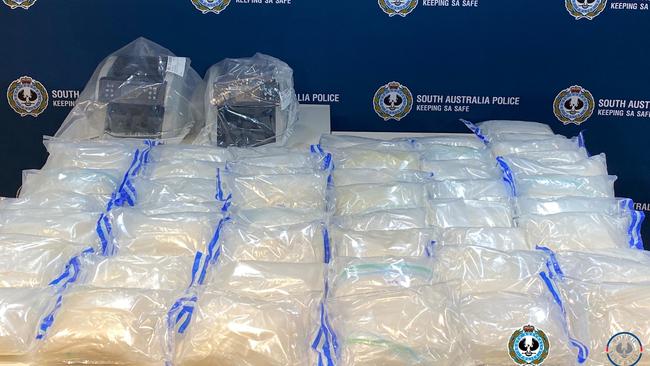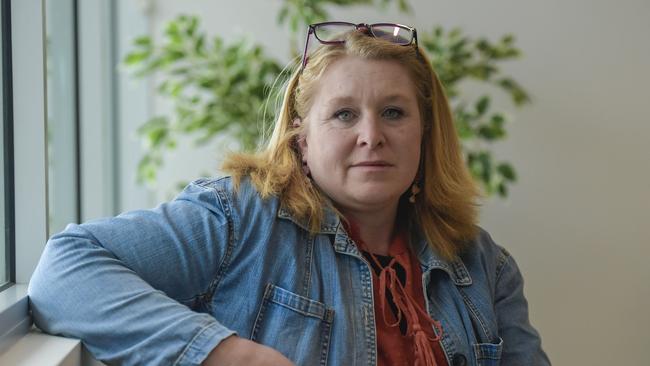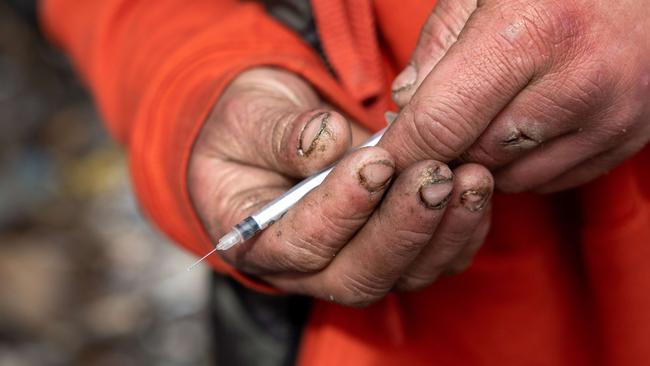Addicts are politically inconvenient for governments | Michael McGuire
We spend $10bn a year on illicit drugs. But declaring war on drugs does little for those suffering from addiction, writes Michael McGuire.
Opinion
Don't miss out on the headlines from Opinion. Followed categories will be added to My News.
Australians spend $10bn a year on illicit drugs. That’s quite a number. In return for that $10bn, you get something like 17.7 tonnes of methamphetamine, cocaine, MDMA and heroin, among a few others.
These numbers were released in March by the Australian Criminal Intelligence Commission and prove, if nothing else, what a rich market opportunity exists in selling drugs to Australians. Of course, it’s a market run almost exclusively by scumbags who don’t have a great deal of concern for their customers. But what do they care? The profits are clearly wonderful.
In recent weeks, The Advertiser and Sunday Mail, have run a series of stories about the damage addiction, in particular, ice is doing to individuals, families and communities.
It’s been eye-opening stuff. But what is clear is that this is an area where state and federal governments need to become a lot more involved.
Every now and again, you will see governments, of all stripes and persuasions, react to some horror story that involves ice. What usually happens is that some sort of “war’’ is declared, a seemingly impressive amount of money will be announced and then everyone moves on and essentially forgets what just happened until the next outrage happens.

The reason is not hard to work out. While there might be votes to be won in pursuing the optics of a “tough on crime approach’’, they are not seen to be there when it comes to helping people who have fallen into drug addiction. That might be viewed as being “soft on crime”, which is a big no-no in political circles.
Yet, it seems clear that the “war on drugs’’ approach has been a failure, as has the simplistic “just say no” message to kids. More people are taking more drugs and more people are making more money off the suffering of others.
And while authorities must continue to pursue those who are manufacturing and selling the stuff, a change in approach is needed when it comes to those who use drugs. It’s time to treat addiction as a health, rather than a legal problem, and to give people the support they need to overcome addiction, whether that is illegal drugs or alcohol.

But that will need a radical change in approach from state and federal governments.
On Saturday, The Advertiser carried the story of Lisa Courtney, who is clinical service manager at the Murray Mallee General Practice Network in Murray Bridge. The network provides services to addicts looking to change their lives.
Courtney described the frustration of the constant scrounging for funds from governments to keep operating. But worse, even when funding is granted, it can take months and months before it arrives in the bank account.
Courtney is still waiting for funds that were included in the last federal budget to arrive. If they don’t arrive by the end of the month, it is likely services will be cut. But even if the promised money does arrive, the wait has caused enormous, entirely unnecessary stress for Courtney and her colleagues, some of whom could be faced with losing their job if the money doesn’t arrive.
This theme of inadequate resources is a recurring one.
The Sunday Mail this week carried a table showing South Australia has the lowest number of residential rehabilitation beds in the country on a per capita basis. Given, for many years, SA also carried the title as the nation’s meth capital, this seems like a terrible failure of government.

Figures can be hazy in this sector, but SA Network of Drug and Alcohol Services executive director Michael White believes there are about 70-80 publicly funded rehab beds in SA. White believes the state needs about 200. There are other beds that are run by private organisations, but they can cost more than $20,000 per treatment.
There are other services which will take 75 per cent of a person’s Centrelink payments as the price of admission, but that’s not going to be suitable for everyone, especially if they have a family to support.
White also says the provision of services is too city-centric.
There are 30 detox beds (the step before rehab) in Glenside, but such options are sparse elsewhere. The Malinauskas Labor government came to power promising an additional 20 rehab beds, of which 12 will be in the city, and four each for Mt Gambier and Port Augusta. It’s a start but much more is needed.
In a recent SANDAS drug reform paper, the organisation said in 2015, state and federal governments spent $1.7bn on illicit drug initiatives.
Of that, 64 per cent was spent on law enforcement, 22 per cent on treatment and less than 15 per cent on prevention and harm reduction. The paper also said that for every dollar invested in treatment, there is a $7 return.
In the course of writing about ice over the past few months, I have talked to addicts wanting to change their lives. Mostly, they were good people who ended up in bad situations for whatever reason. Most had tried more than once to get clean. They knew how destructive and unhinged their lives had become.
They struggled with the stigma of their drug use.
Addiction is a serious chronic disease. It needs to be treated as such.




